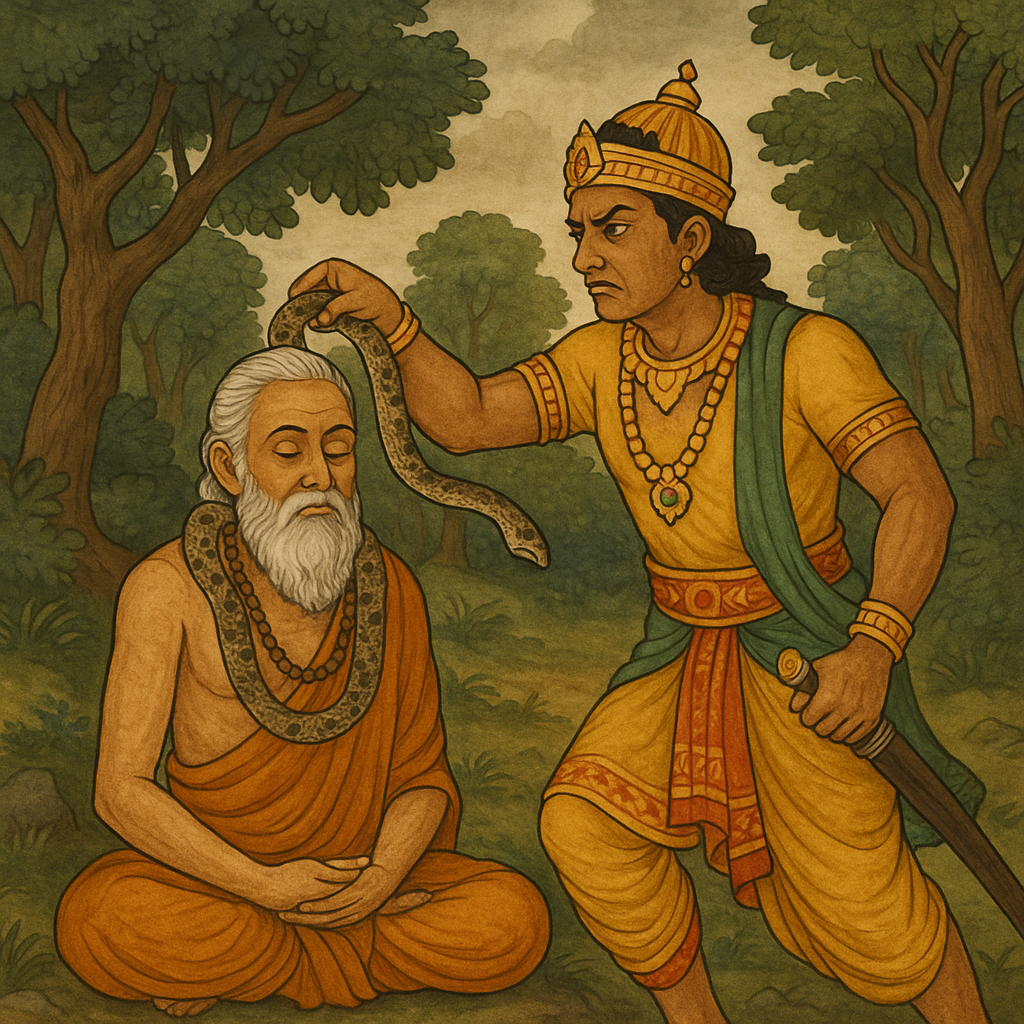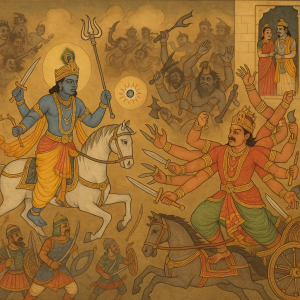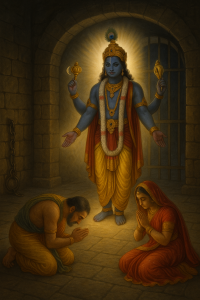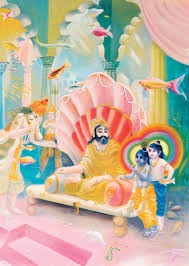The Fated Day in the Forest
One day, while Mahārāja Parīkṣit was hunting in the forest, he became thirsty and fatigued. Wandering in search of water and rest, he came across the hermitage of the sage Śamīka Ṛṣi, who was deep in meditation and immersed in trance.
Parīkṣit respectfully approached, but the sage, completely absorbed in internal samādhi, did not respond or acknowledge his presence. Misunderstanding the sage’s silence as arrogance or neglect, Parīkṣit became momentarily angry. In a rare lapse, he picked up a dead snake lying nearby and placed it on the sage’s shoulders as a mock garland.
After doing so, he returned to his palace, but immediately regretted his action, feeling ashamed that he had insulted a brāhmaṇa, especially one immersed in divine meditation.
Śṛṅgi’s Impulsive Curse
Later that day, the sage’s son, Śṛṅgi, a powerful young brāhmaṇa and ascetic, heard of the offense done to his father. Inflamed by anger and without fully understanding the context or his father’s detachment, Śṛṅgi pronounced a terrible curse:
“May that King Parīkṣit, who insulted my father by placing a dead snake on him, die in seven days by the bite of Takṣaka, the king of serpents!”
The sage Śamīka, upon waking and learning what had occurred, was deeply disturbed. Though Parīkṣit had erred, the curse was disproportionate, and the king had already repented. He lamented the immaturity of his son and sent messengers to warn Parīkṣit.
Parīkṣit’s Noble Response
When Parīkṣit received the news, he did not protest or retaliate. Accepting the curse as the will of the Lord, he renounced his kingdom and wealth, and proceeded to the banks of the Gaṅgā, preparing for death through meditation and remembrance of Kṛṣṇa.
There, he sat humbly, surrounded by sages from all corners of the world who had gathered to witness the final moments of a righteous king.
The Setting of the Bhāgavatam’s Stage
This sacred gathering set the stage for one of the most divine events in history—the arrival of Śrī Śukadeva Gosvāmī, the transcendental speaker of the Śrīmad-Bhāgavatam.
Parīkṣit, knowing he had only seven days to live, asked:
“O great sage, please tell me—what is the duty of a person who is about to die? How should one prepare for the end of life?”
In answer to this question, Śukadeva Gosvāmī began reciting the Śrīmad-Bhāgavatam, the spotless Purāṇa, filled with the glories of Lord Viṣṇu and His incarnations, especially Lord Śrī Kṛṣṇa.
Lessons to Be Learned:
- Even great devotees can make mistakes, but their humility and repentance protect them.
- A true devotee like Parīkṣit accepts fate without blame, seeing the Lord’s hand even in apparent punishment.
- Curses and blessings shape the history of dharma through divine will.
- The Bhāgavatam, the eternal light of the age of Kali, was revealed due to Parīkṣit’s question, setting an eternal example for all seekers of truth.
Origin of the Story: Harivamsa Purana 3 – Chapter 144: The Curse of Śṛṅgi and the Preparation of Mahārāja Parīkṣit for Liberation



